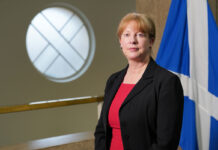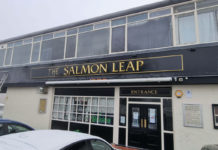
THE Scottish Licensed Trade Association (SLTA) has urged operators across Scotland to ensure they are recording customer contact details after the rules became mandatory last Friday (August 14).
Licensed premises are now required by law to record customer contact details for NHS Scotland to use in the event that a customer tests positive for COVID-19 after visiting the venue.
SLTA managing director, Colin Wilkinson, said that although the “vast majority of responsible operators” have already introduced systems for recording contact details, “it is imperative that the whole industry now adheres to the new statutory guidance and the mandatory collection of customers’ details to avoid even further restrictions in operating”.
“While a large number of businesses – national and independent – have chosen the provision of QR code-based systems to comply with Test and Protect this, as has been shown in a number of reported cases, has just relied on customers using the system with no insistence or intervention from staff to ensure that contact details have been properly registered,” said Wilkinson.
“Likewise, simply providing a pen and paper for customers to sign without insistence or intervention by staff is no longer acceptable.
“The SLTA cannot emphasise enough that what is currently for some a voluntary/staff non-intervention approach to the collection of customers’ details is no longer acceptable. Quite simply, there must be additional staff intervention and service restrictions if customers fail to provide their contact details.
“There must be a level playing field for all, so that we don’t punish the many for the mistakes of the few.”
The SLTA is also working with other trade groups to address Scottish Government guidance on background noise in venues.
The guidance currently states that there should be no background music in premises and televisions should be muted with the subtitles on. The Scottish Government said the step was taken “so people do not need to raise voices to be heard or get closer to others”, which it said presents “an increased risk of transmission”.
Wilkinson said move has provoked “disappointment and concern for the future of the hospitality industry”.
“While the government says that this is absolutely necessary, the views of some within the hospitality industry differ, and the SLTA, SBPA (Scottish Beer and Pub Association) and the Music Venue Trust are working together to provide evidence that this ban is counter-productive to what is trying to be achieved,” said Wilkinson.























